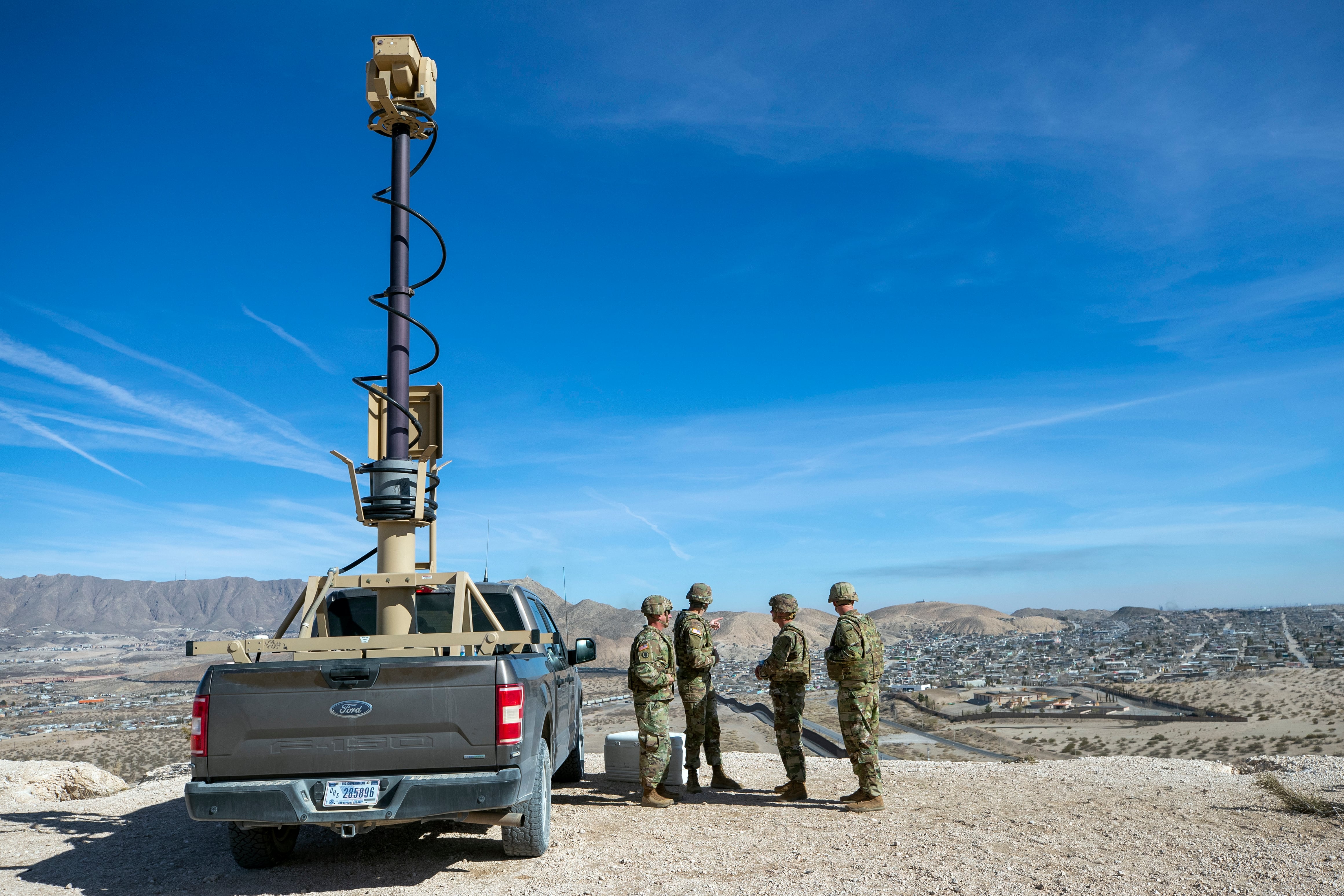U.S. and Russian forces operating in Syria have increased the use of the deconfliction hotline — a communication line opened to avoid midair collisions and reduce the potential for miscalculation by forces operating in Syria, according to Air Force Lt. Gen. Jeffrey Harrigian, commander of U.S. Air Forces Central Command.
As American-backed Kurdish forces have advanced, with the aid of U.S. airpower, to within a couple kilometers of Raqqa, the self-declared capital of the Islamic State group, the airspace around the area has become "tight," Harrigian explained.
"What we are trying to do is drive down ambiguity," Harrigian said.
On May 18, several phone calls between Russian and U.S. military officials were made regarding the movement of Syrian-backed militias moving toward the an-Tanf border crossing, near where U.S. forces are training partner forces in the fight against ISIS.
Despite Russian attempts to halt the advance, the convoy continued onward to within 55 kilometers of what Harrigan described as a deconfliction zone for the an-Tanf region. U.S. aircraft conducted a show of force, fired warning shots, then destroyed an armored vehicle and a "technical" — a modified pickup truck with a mounted machine gun, Harrigian explained.
The U.S. has made its intentions clear to the Russians regarding an-Tanf, and deconfliction is now working well, said Capt. Jeff Davis. Pro-regime militias have since halted their advance toward An-Tanf, but there is still one group inside the deconfliction zone. Over the weekend there was another show of force by U.S. aircraft.
"They have gotten the memo," Davis said.
U.S. forces are watching the movements of Syrian-backed militias in the an-Tanf region around the clock. "Over time they will recognize it is not in their best interest to move toward us," Harrigian said.
He declined to provide further details on whether other acknowledged deconfliction zones between the U.S. and Russia exist in Syria. However, as the operations there become more complex with the steady collapse of ISIS, the need to be lear about intentions and operations is ever more important.
The deconfliction areas should not be confused with de-escalation zones, Harrigian explained, which are no-fly zones established during the Astana talks in Kazakhstan. The U.S. is not party to that agreement and does not recognize any zones that impede its ability to go after its enemies in Syria, he said.
"Wherever the enemy is at, wherever they present themselves, we are going to go after them," Harrigian said.
To ease potential mishaps and miscalculation as the battlefield in Syria becomes more dynamic, the deconfliction line has expanded beyond just calls between a Russian and U.S. colonel. In a few rare cases, there have been calls at the two and three-star level, Harrigian said. But with Syrian and Russian forces pushing east while anti-ISIS shaping operations were beginning in Raqqa, the need to be more clear about maneuvering forces and intentions required a higher level of contact and detail, Harrigian said.
The Russians have been receptive to U.S. operations in the region, he said, adding, "In most situations we have a common enemy."
It can take several phone calls to make intentions clear, but the U.S. has freedom of movement to go after its enemies in Syria, to include ISIS and al-Qaida affiliates.
In only one case have Russian aircraft conducted an unprofessional intercept of a U.S. aircraft, according to Harrigan. The incident involved a U.S. KC-10 air refueling tanker and a Russian Su-35 or Su-30 fighter aircraft. U.S. military officials called out the Russians on their unprofessional action, and the Russians apologized for the incident, Harrigian said.
Kurdish-led Syrian Democratic Forces have made steady gains since the capture of the Tabqa dam in early May. Just a stone’s throw away from Raqqa, Kurdish militants are close to seizing the Baath dam, which "is the last vehicle-accessible crossing point of the Euphrates River near Raqqa," according to officials at U.S. Central Command. With the pending liberation of Raqqa on the horizon, deconfliction and transparency of intentions in the congested airspace will be important for both U.S. and Russian forces operating in the region.
Shawn Snow is the senior reporter for Marine Corps Times and a Marine Corps veteran.




